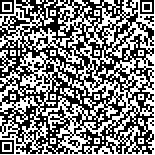| Quote
: |
殷坚, 李美丽, 李亮, 潘波, 金政, 陈苗苗, 赵俊杰, 唐曦.基于网络药理学及实验验证探讨补阳还五汤治疗脊髓损伤的作用机制[J].湖南中医药大学学报英文版,2024,44(7):1261-1269.[Click to copy
] |
|
| |
|
|
| This paper
:Browser 2188times Download 1110times |
| 基于网络药理学及实验验证探讨补阳还五汤治疗脊髓损伤的作用机制 |
| 殷坚,李美丽,李亮,潘波,金政,陈苗苗,赵俊杰,唐曦 |
| (湖南中医药大学医学院解剖教研室, 湖南 长沙 410208;湖南省脑科医院(湖南省第二人民医院)康复医学科, 湖南 长沙 410015) |
| 摘要: |
| 目的 运用网络药理学及实验验证探讨补阳还五汤治疗脊髓损伤的潜在靶点及机制。方法 通过网络药理学相关数据库筛选补阳还五汤和脊髓损伤相关靶点并进行映射,将共有靶点进行PPI网络分析、GO和KEGG富集分析。构建大鼠脊髓损伤模型,并将造模成功的24只大鼠随机分为假手术组、模型组和补阳还五汤组,每组8只探索和验证补阳还五汤治疗脊髓损伤的相关通路和靶点。结果 获得214个补阳还五汤靶点、2 647个脊髓损伤相关靶点,取交集的58个共有靶点。PPI网络筛选得到两个核心子网络,其中ALB、Akt1、HIF-1α、VEGFA和JUN为关键靶点。GO分析得到1 583个条目。KEGG分析表明补阳还五汤治疗脊髓损伤与PI3K-Akt、NF-κB、P53等多条通路密切相关。补阳还五汤组Basso-Beattie-Bresnahan(BBB)评分高于模型组(P<0.01, P<0.0001)。补阳还五汤上调脊髓损伤后关键蛋白HIF-1α、ALB、VEGFA和JUN水平(P<0.05, P<0.01);补阳还五汤下调脊髓损伤后通路蛋白p-PI3K/PI3K、p-Akt1/Akt1、p-NF-κB p65/NF-κB p65、P53水平(P<0.05)。结论 补阳还五汤能够抑制脊髓损伤后SD大鼠脊髓损伤节段PI3K-Akt、NF-κB、P53等通路和促进HIF-1α、ALB、VEGFA和JUN等关键蛋白表达,从而促进神经功能恢复,发挥治疗脊髓损伤的作用。 |
| 关键词: 脊髓损伤 补阳还五汤 网络药理学 PI3K/Akt通路 NF-κB通路 P53通路 |
| DOI:10.3969/j.issn.1674-070X.2024.07.017 |
| Received:December 30, 2023 |
| 基金项目:湖南省教育厅一般项目(21C0253);湖南省卫生健康委科研计划项目(20200741);湖南省中医药管理局科技项目(2017128)。 |
|
| Mechanism of action of Buyang Huanwu Decoction in treating spinal cord injury based on network pharmacology and experimental verification |
| YIN Jian, LI Meili, LI Liang, PAN Bo, JIN Zheng, CHEN Miaomiao, ZHAO Junjie, TANG Xi |
| (Department of Human Anatomy of School of Medicine, Hunan University of Chinese Medicine, Changsha, Hunan 410208, China;Department of Rehabilitation, Brain hospital of Hunan Province (Hunan Second People's Hospital), Changsha, Hunan 410015, China) |
| Abstract: |
| Objective To investigate the potential targets and mechanisms of Buyang Huanwu Decoction (BYHWD) in the treatment of spinal cord injury through a combination of network pharmacology and experimental validation. Methods Relevant targets for BYHWD and spinal cord injury were screened through network pharmacology databases and mapped. Common targets were subjected to PPI network analysis and GO and KEGG enrichment analyses. A rat model of spinal cord injury was established, and the successfully modeled rats were randomized into sham-operated, model, and BYHWD groups to explore and validate the relevant pathways and targets of BYHWD in the treatment of spinal cord injury. Results A total of 214 BYHWD targets and 2,647 spinal cord injury-related targets were obtained, with 58 common targets intersected. PPI network analysis identified two core subnetworks, with ALB, Akt1, HIF-1α, VEGFA, and JUN as key targets. GO analysis yielded 1,583 entries. KEGG analysis indicated that the treatment of spinal cord injury with BYHWD was closely associated with multiple pathways, including PI3K-Akt, NF-κB, and P53. The Basso-Beattie-Bresnahan(BBB) score of the BYHWD group was higher than that of the model group(P<0.01, P<0.0001). BYHWD upregulated the levels of key proteins HIF-1α, ALB, VEGFA, and JUN after spinal cord injury (P<0.05, P<0.01), and downregulated the levels of pathway proteins p-PI3K/PI3K, p-Akt1/Akt1, p-NF-κB p65/NF-κB p65, and P53 after spinal cord injury (P<0.05). Conclusion BYHWD can inhibit the PI3K-Akt, NF-κB, and P53 pathways and promote the expressions of key proteins such as HIF-1α, ALB, VEGFA, and JUN in the injured segment after SD rat spinal cord injury, thereby promoting the recovery of neural function and exerting a therapeutic effect on spinal cord injury. |
| Key words: spinal cord injury Buyang Huanwu Decoction network pharmacology PI3K/Akt pathway NF-κB pathway P53 pathway |
|

二维码(扫一下试试看!) |
|
|
|
|


